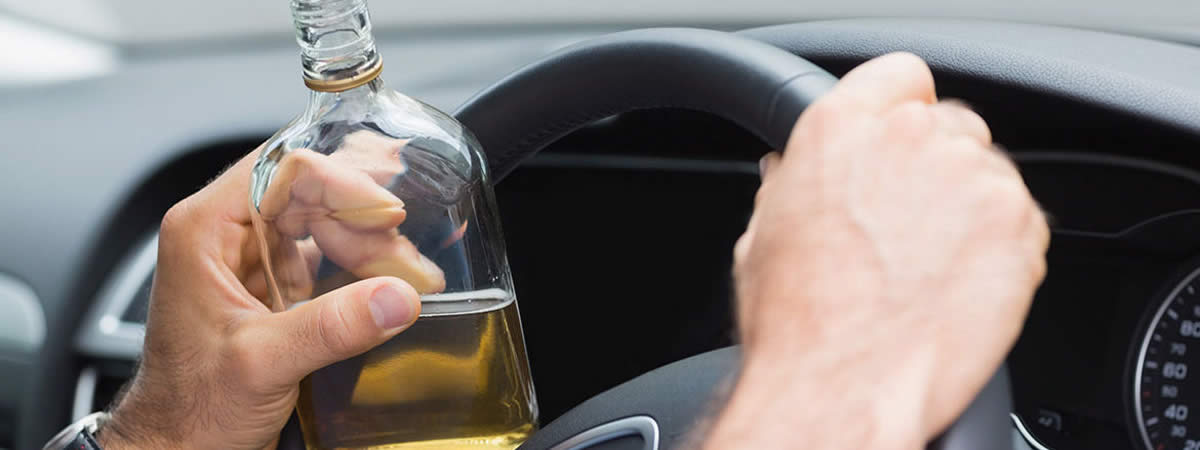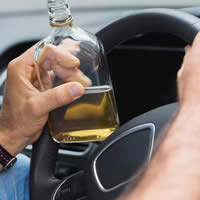Driver’s License Suspension for DUI in Arizona

Driving under the influence of alcohol or drugs in against the law in Arizona, as it is in most states. When you apply for a driver’s license, you are accepting the privilege of driving a car. In Arizona, this also means that you consent to a blood alcohol (or drug content) test if you are suspected to be under the influence.
If you are pulled over by a police officer, they can request that you submit a blood alcohol or drug content test of either your blood, breath, or urine to measure the exact amount of the substance present in your system.
Arizona is known to have some of the strictest DUI laws in the country. If you are convicted, you can end up paying massive fees, spending time in jail, and having to install an ignition interlock device in your car.
Revocation
If you get pulled over for a DUI and have an alcohol concentration of 0.08% or higher, your driving privilege will be suspended instantly. If your driver’s license is revoked, that means your driving privilege is terminated until further notice. It is up to the court to determine how long your revocation period will last, but it is a guarantee that you will lose your license if you are found guilty in the case of a DUI.
Even after the revocation period is over, you will still not be able to drive until a complete investigation of your driving record has been completed. In most cases, you will need to complete an alcohol or drug screening before you can reinstate your privilege. If it is necessary, you will be issued a new driver’s license.
Implied Consent
When you get a driver’s license in Arizona, it is implied that you agree and consent to a test if a police officer thinks you might be driving under the influence. If you refuse this test, your license will be automatically suspended for a full year. If this is not the first occasion of you refusing this test, your license will be suspended for two years.
Even though Arizona has an implied consent law, you can still refuse the blood test or breathalyzer. There will still be consequences if you refuse the test, and they might even be worse than the original consequences.
Suspension vs. Revocation
A suspended license is just temporarily out of service, meaning you will not be able to use it for a short period of time. A definite suspension means you can regain access to your license after the suspension period is over and you have paid all related fees. An indefinite suspension means your license will remain suspended until you take some further action.
If your license is suspended, you can petition the court to get a restricted license after 30 days. This will allow you to drive to and from work or school, as well as drive to see a probation officer if necessary. You must be able to prove you have completed required drug or alcohol education.
A revoked license will be completely cancelled and can not be reinstated. To get a new license, you must submit a request for approval to the state’s DMV and pay any necessary penalty fees. You will then be able to go through the process of getting a new driver’s license through the state.
Challenging a Suspension
If your license has been suspended and you think it is a mistake, you can attempt to challenge with a hearing. You will go to court and present your case in front of a judge. The three main areas to try to challenge are whether there were reasonable grounds to believe the driver was under the influence, whether there was a chemical test administered, and if the results of the test was evaluated properly.
It is important to keep in mind that even if you win the case and your license remains valid, if you do end up being convicted for a DUI you will lose your license at that point. If this is the case and you only lose your license due to DUI conviction, you will be required to carry an SR22 insurance policy before you are able to get your license back.
Other Penalties
In addition to your driver’s license being revoked, there are other penalties you will face as well. On your first offense of a DUI, you will be required to be in jail for no less than 10 consecutive days and fined no less than $1,250. It will also be required that you receive alcohol education and have a certified ignition interlock device installed on your car. You will also need to complete community service.
On your second and any following offenses, you will be required to stay in jail for at least 90 days and fined at least $3,000. Your license will automatically be revoked for 12 months, and you will need to receive alcohol education. It will also be required that you have an ignition interlock device that is certified installed in your vehicle. Completion of community service is also required.
License Reinstatement
When your revocation period is over and you have been granted the ability to reinstate your license, you will need to make sure everything is still accurate. You might even be able to handle the reinstatement online.
There will be fees associated with reinstating your license, which you will be made aware of when you are in the process of the reinstatement. Some of the fees to be aware of might include DUI suspension ($10), Revocation ($20), Court directed suspensions ($10), and possibly other fees. You may not be required to pay each of these fees, as the fees charged depends on your specific case.
What is an SR-22?
A common confusion about an SR-22 is that it is an actual insurance policy. Actually, it is an official document provided to you to prove that you have purchased the minimum liability insurance necessary in your state. It is basically a financial responsibility certificate.
When you are notified that you need to obtain an SR-22, you will need to contact your insurance company. Some insurance companies do not offer an SR-22, so you might need to find a new insurance policy all together.
In most cases of DUI license suspension, you will be required to get an SR-22 before you are allowed to reinstate your license. This should be a priority and you should find an insurance company with one as quickly as possible if yours does not offer one.
Conclusion
If you get pulled over for a suspicion of DUI, chances are your license is going to be suspended for at least 90 days. In some cases, you might even get your license completely revoked and have to go through the whole process all over again.
There are ways to fight the suspension, but only if you have proper reasoning and proof to do so. Even if your license isn’t suspended after you challenge it, it might end up being suspended or revoked if you end up being convicted of a DUI.


















